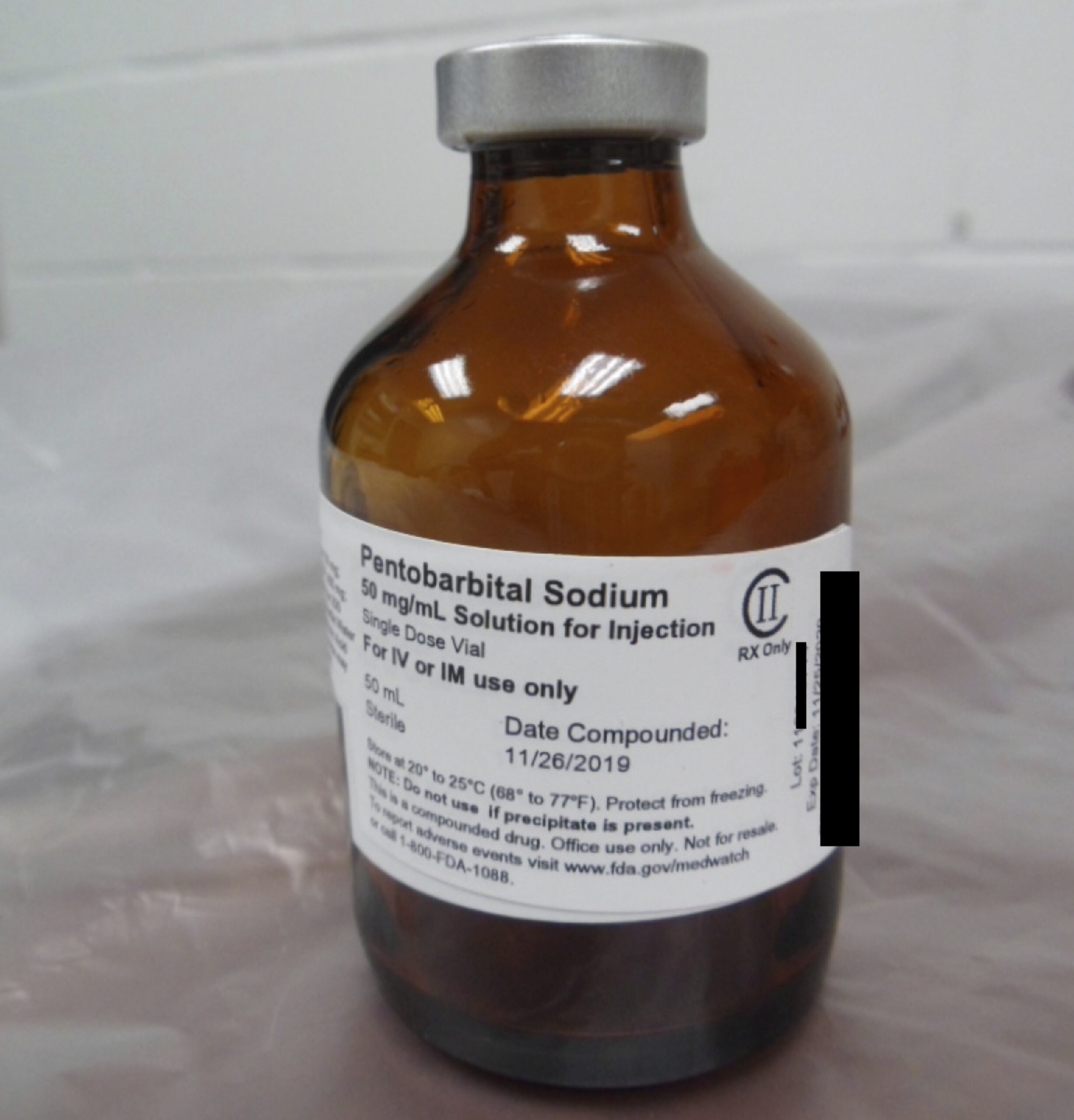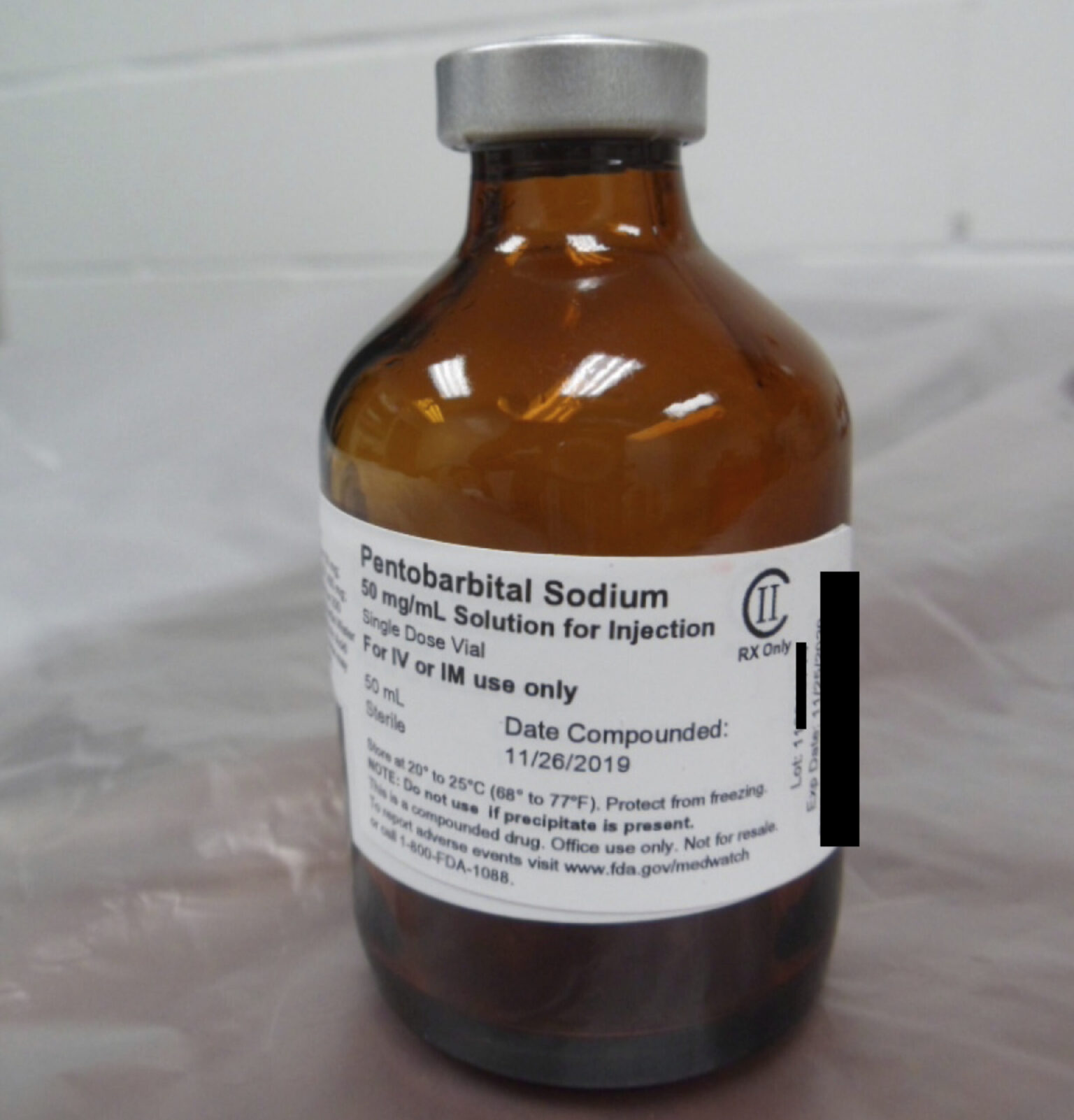
As Tennessee gears up to resume executions, the drug it will use has again made its way to the national spotlight.
On his first day in office, President Donald Trump signed an executive order that focused on resuming the death penalty on the federal level. But one section also focused on states.
“The (U.S.) Attorney General shall take all necessary and lawful action to ensure that each state that allows capital punishment has a sufficient supply of drugs needed to carry out lethal injection,” it reads.
Last month, Tennessee announced it will start administering the controversial sedative pentobarbital. That’s the same medication the Federal Bureau of Prisons used in executions under the first Trump administration. The Tennessee Department of Correction refused to release any details at the time, but later released a redacted version of its protocol. Among other things, it shows the dosage of pentobarbital the state will administer: 5 grams.
That medication was the center of a scathing report released by the U.S. Justice Department last week, in the final days of the Biden administration. It carried out no executions, but officially maintained the same protocol — one big dose of pentobarbital.
U.S. Attorney General Merrick Garland released a legal review on that practice, raising concerns that its use could cause unnecessary pain and suffering. Specifically, it could cause a type of lung damage that would cause the sensation of drowning.
That’s because of the dose. This is a common sedative, usually used to treat seizures, relieve insomnia or prepare a patient for a surgery with full anesthesia.
“The standard injectable dose of pentobarbital is between 150 and 200 milligrams,” the report reads. “Toxic doses of pentobarbital occur at approximately 1 gram in most adults, with death occurring at 2 to 10 grams.”
The compound is alkaline — the opposite of acidic. But something very alkaline can cause damage. For example, Drano is highly alkaline. That’s how it dissolves hair and soap scum in plumbing.
When a chemical is really acidic, it has a low pH level. When it’s alkaline, otherwise known as basic, it has a high pH.
“In essence, the drug’s pH level is so high that it damages the blood vessels in the lungs and causes them to fill with fluid, leading to the feeling of drowning,” the report reads.
A 2020 NPR investigation found this is a widespread problem. The type of lung damage is called a pulmonary edema. Researchers collected more than three dozen autopsy reports on prisoners who had undergone lethal injection. About three-quarters of them showed signs of the lung damage.
Garland’s report also notes that because the prisoners are sedated, it’s unclear whether they are totally unconscious and incapable of experiencing pain or simply unresponsive.
Lastly, the drugs carry some risk because they are generally not FDA approved.
Since the early 2000s, major pharmaceutical companies have refused to sell their drugs for use in the death penalty. That means the federal government and states like Tennessee often have to buy the raw ingredients, then take them to a special lab to mix them together. Because these drugs aren’t made by drugmakers like Pfizer, they’re not subject to the same U.S. Food and Drug Administration regulations.
The labs are compounding pharmacies. These often make generic versions of popular drugs for niche customers — like ones who are allergic to some ingredient and need it left out.
They are regulated by the FDA, but Garland’s report notes this is rare. There are 88 compounding pharmacies nationwide that have mixed together injectable pentobarbital.
“(Thirty-one) of which have never been inspected by the FDA,” it reads. “In 55 of the 57 facilities that have been inspected, FDA officials have issued a Form 483, officially noting ‘significant objectional conditions’ at the facility.”
The chemical companies and compounding pharmacies tend to be protected by secrecy laws. Supporters of those laws say they’re necessary to protect the workers from security threats.




